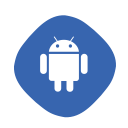For instance, a new mother with a two week old baby shall have many questions that might seem irrelevant to a professional but are of critical importance to the mother. She will have a number of questions regarding the baby’s suckling habits, sleep routine, ideal temperature and whether it is ok to leave a sock in the little one’s hand among other things.
These questions though relevant do not require the expertise of a doctor. The young mother might be better taken care of by a health visitor. Though, that is not a choice always. Additionally, turning to Google might lead to more questions than answers. Also, many people do not have the required knowledge to assess the quality of information and identify fake news.
This gap cannot and in fact should not be filled by an expanded primary care service. Patients should not be required to traipse to the GP’s office just to get a 10 second response for such basic questions. On the other hand, depending on symptom checker website is not an ideal or completely reliable solution as they are not driven by smart algorithms. Further, instant messaging apps are not ideal to fill this gap either because it is not possible for a physician to be available at all times. Hence, the only solution to fill this gap is employing a digital health chatbot that is supported and taught by physicians.
Advancements in Heathcare Chatbots
A range of smart bots for healthcare facilities are available today. These digital assistants are able to provide appointment details, make changes and even connect patients to the right doctors. Further, it helps patients to easily pay bills and refill prescriptions. It also provides procedure outcomes or lab tests and advices about the next steps.Some automated chat messaging services could provide assistant like support to doctors and health professionals in the form of appropriate drug related information. A bot could help women remember birth control pills. Chatbot development is now increasingly dedicated to using AI to recommend solutions for more common symptoms. However, no bot can replace an experienced doctor. The chatbot in itself simply encourages a user to schedule an appointment and seek prognosis that eventually leads to medications or therapy.
Older patients might prefer a chatbot that performs the role of a ‘personal nurse’ who reminds patients to take their pills on time. All you need to do is simply write the name and time lines of the medication in the chat. The bot will then continue to send a reminder via chat whenever it is time for you to take your pill.
Chatbot digital health assistants are currently equipped with the technology required to answer basic health management questions. Soon, there will be a time when they will be able to perform more complex functions by learning from self-evaluated mistakes.
Additionally, the entire fleet of chatbots shall learn from the mistake of a particular service. These intelligent personal assistants crunch data at lightning speed and will quickly learn to follow up or direct a patient to physician attention.
In the future, it is expected that these personal digital assistants will be able to make wise decisions by checking our data and medical records. Maybe, there will come a time when they shall be able to diagnose a certain medical condition by analyzing only our voice.
















































